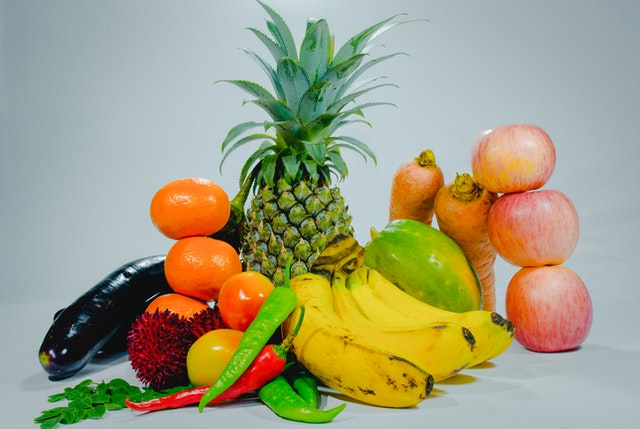Finding out if what you eat or drink is causing or worsening your tinnitus is an often tedious, if responsible, process. So before you begin, understand there’s almost no objective scientific evidence proving a solid connection between tinnitus and diet. That said, you may discover some foods or drinks that trigger or worsen your tinnitus.
Does any diet affect tinnitus?
There is little scientific evidence linking diet to tinnitus. However, a proper diet can reduce your blood pressure, lower your weight, enhance your mood, and improve your sleep quality. The healthier you are, the less impact tinnitus will have upon you.
The five foods that may trigger tinnitus spikes.
Tinnitus spikes are short, powerful changes in your tinnitus that can feel like setbacks in your recovery. Many sufferers believe their spikes are caused by something they recently ate or drank.
Again, it is important to stress that a diet is not a substitute for medical assistance, but a healthy diet could help you manage your tinnitus. This makes it critical to know what you should or should not eat.
While there is only one way to confirm such a relationship (by keeping a tinnitus journal), there are five known suspects.

The five to avoid for tinnitus spikes.
Caffeine. Caffeine intake disrupts sleep, and nothing reduces your perception of tinnitus quite like a good night’s sleep. Therefore, limiting caffeinated beverages several hours before bedtime is an excellent habit for tinnitus patients. Whether or not caffeine aggravates tinnitus, though, is hotly disputed. For some, coffee, tea, or soda reportedly reduces their daily tinnitus perception levels. Others associate its consumption with increased stress and the worsening of tinnitus symptoms.
Alcohol. Alcohol also disrupts and is linked to a host of other health issues (like an increase in blood pressure) associated with tinnitus. Given the scant benefits associated with even moderate alcohol consumption, this is one item most tinnitus patients should consider entirely removing from their diet.
Saturated fats. The blood vessels in your auditory system are vulnerable to any reduction in blood flow. Saturated fats can increase your cholesterol, leading to a potential condition known as atherosclerosis. Atherosclerosis, the buildup of fat and calcium, can narrow or block these blood vessels—damaging them and causing tinnitus and leading to possible hearing loss.
Salt. Salt can also affect the blood flow to your auditor system by contracting your blood vessels and increasing your blood pressure. Reducing salt consumption, one of the most effortless dietary changes often produces rapid results for many patients.
Sugar. Many tinnitus patients report a temporary increase in tinnitus symptoms following excessive sugar consumption. Continued overindulgence of sugar may interfere with the nerves that permit the brain to interpret the sound and damage the blood vessels supplying the ears.
The five foods that may soothe tinnitus.
First, a caution; there still is no evidence vitamin supplements or a specific diet can cure or even treat your tinnitus. The list below represents more “wisdom of the crowd” than anything else. Many tinnitus patients claim to have reduced tinnitus symptoms from the following list.
What to Eat
Inflammation-reducing foods like kiwi fruit, pineapple, and ginger –.
Potassium-rich foods that help your nerves function and muscles contract– Apricots, pears, bananas, yogurt, spinach, and sweet potatoes.
Foods with B12 ( a product not naturally produced by your body). B12 is found in animal products like fish, meat, poultry, eggs, and milk. A recent study found that a significant percentage of tinnitus patients shared a similar b12 deficiency.
Zinc. One study focusing on tinnitus caused by exposure to loud noise suggest a possible reduction in difficulties people with tinnitus suffer.
Zinc is naturally found In nuts, dark chocolate, yogurt, chicken, beef, spinach, lamb, and shellfish.
Folate containing foods may prevent further hearing loss, and at least one study’s data found a potential for nutritional therapy. Folates are found in dark green leafy vegetables (turnip greens, spinach), beans, peanuts, Sunflower seeds, Fresh fruits, fruit juices, and whole grains.

Use a food journal to measure your tinnitus diet results.
There is only one way to document the effect any particular food or drink is having on your tinnitus: A Daily Tinnitus Journal. A good tinnitus journal will track your daily tinnitus levels, physical activities, and your diet.
Tracking your diet is a long-term effort. The more specific you are and the more data you collect, the more likely you will obtain helpful information.
How to use a food journal to track diet and tinnitus results.
Begin by eliminating or reducing the five significant tinnitus suspects listed above. Simply reducing some items (like caffeine) to avoid withdrawal symptoms is perfectly acceptable.
After doing so, note your daily tinnitus perception for at least 90 days. Tinnitus levels naturally fluctuate, so you will need an average of over 90 days to notice any potential lessening of symptoms. You may, however, note quicker responses as your sleep improves (caffeine moderation and timing) and weight and blood pressure decrease.

After you have tracked your progress and noted any changes related to the top five suspects, you can test a particular food’s effect. Begin by eliminating it from your diet for at least a few weeks. Note any changes and make your decision.
Paying attention to your diet, logging in everything you consume, and measuring your tinnitus for 90 days is exhausting work. In the end, you may even discover there is no connection between your diet and your tinnitus.
At least not directly. Indirectly, health improvements such as better sleep, lower blood pressure, reduced weight, and an enhanced emotional state—WILL help you manage your symptoms.
